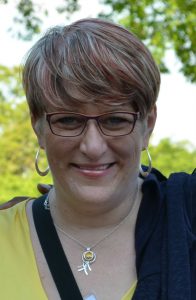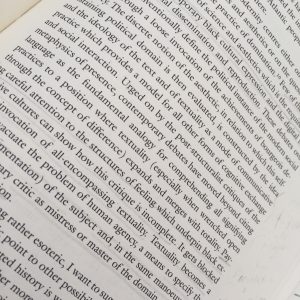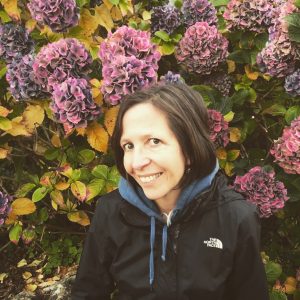By Barb Fouts-Melnychuk
This is my first official blog post and I am thrilled and nervous to write at the same time. I have just finished my seventh course for my master’s program in Curriculum and Instruction focusing on Literacy. At this point in this 13-month journey I fall asleep if I sit still for more than ten minutes. Hilarious but true! Being a literacy consultant, doing a master’s program and trying to balance a family simultaneously is tough. What made the workload even tougher is having Attention Deficit Hyperactivity Disorder (ADHD) and a learning disability. Translation: I do not process directions, readings, people’s comments or class discussions in the patterns my classmates did. My unique learning style translated to 25 very rewarding years teaching junior high, or as you say in BC, middle school, but the learning style has not made grad school easy.
on Literacy. At this point in this 13-month journey I fall asleep if I sit still for more than ten minutes. Hilarious but true! Being a literacy consultant, doing a master’s program and trying to balance a family simultaneously is tough. What made the workload even tougher is having Attention Deficit Hyperactivity Disorder (ADHD) and a learning disability. Translation: I do not process directions, readings, people’s comments or class discussions in the patterns my classmates did. My unique learning style translated to 25 very rewarding years teaching junior high, or as you say in BC, middle school, but the learning style has not made grad school easy.
I started a master’s program in July 2017 because as a consultant last year in Alberta, I supported 13 junior high schools and coached 100 teachers. I was asked to come back month after month and every meeting there were more and more teachers in attendance. Junior high teachers want to adopt practices that transform their student learning. In my school district in Edmonton, there are 100,000 students, and approximately 263 schools. Translation: many teachers want to adopt their classroom practices to meet the varied needs they see hourly. My master’s program has given me the language and capacity to walk into every classroom or school, see the strengths of the staff, listen to their “what if we could . . .?” questions and find the scaffolds and strategies to support the inquisitive professionals. The master’s program also highlighted my learning disability and required me to ask for help.
I have always had difficulty writing for academic purposes because I could not understand the patterns I was to follow. I saw connections between the theories and classroom practice. Twenty-five years of reading, studying, practicing and planning, which resulted in 55 to 60-hour work weeks, allowed me to find ways to motivate and engage my students. My whole career I was able to get results from students that were supposedly unattainable or from the students who don’t care. In my classroom I have LOVED making literacy theory practical for my students and my colleagues! What my insane work schedule did not do was develop my writing skills for academia.
Then the Learning and Teaching Centre came on my radar after a professor this summer handed back a paper saying, “Barb you get the ideas and theories, but you need an editor to find the transitions and develop the coherence.” The comment was said with kindness and in support, and I had already come to this realization during my last 12 months. One of my supportive cohort members suggested the Centre for Academic Communication (CAC). I was spending HOURS trying to meet the academic standards and barely making it.
It is so humbling to ask for help once again in my academic studies. New to me, NOT! My grade 12 Chemistry teacher was so excited when I got a 67% on the provincial diploma exam. He told me that mark meant more to him than so many of the students who got honors because of the hours of work he saw me put in that did not result in higher grades. Yet now I was in a master’s program asking for help. Did that mean I did not actually have the stuff to be here?
At the CAC I asked for an editor and received a writing coach! What a delightful surprise. Someone who read aloud what I had written and allowed me to hear the lack of coherence and then that same someone asked me to clarify how the ideas related? These were easy questions and I quickly rattled off the answer and then typed as if the keys were on fire and I had to quickly unload my ideas from my hands. The words flowed from me because the gift of ADHD is that I learn the material to a level of specificity that most people don’t see. My brain wants to understand the theory of literacy to the degree that I can disperse the theory into practical application for all the teachers I support.
I would leave an hour’s session at the CAC so excited and energized that many of my cohort group are planning on using the writing supports during the 2018-19 year as we complete our project. My fellow grad students could not believe I revised 800 words in 45 minutes and took the quality of my writing to a much higher standard. Not only was my writing more aligned with masters degree benchmarks but my confidence soared after each visit. I started to realize I could write and that I was in grad school for valid reasons. I want to help teachers so that I am really helping teenagers embrace the potential they have and encourage them to heal and bring hope to combat some of the ugliness in our world.
Who knew one hour could do so much? Luckily, I did not, and I was so grateful to have been able to sign up for three hours in my last week. My writing abilities can almost leap tall buildings in a single bound and it’s just in time. This master’s project is going to take every writing skill I have and now I have more.
About Barb
Barb has taught junior high/middle school for 25 years and is now a literacy consultant with Edmonton Public Schools. She has taught for many years, in all four disciplines, but landed in English Language Arts. Her love of diverse learners has allowed Barb to teach the spectrum of learners who are gifted to learners identified with special needs. Barb is part of the international Freedom Writer Teachers and is looking forward to the year when she finally figures out all there is to know about teaching. She can be reached at barb.melnychuk@epsb.ca

